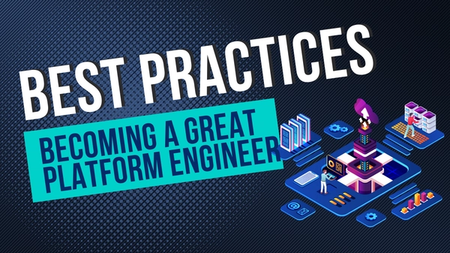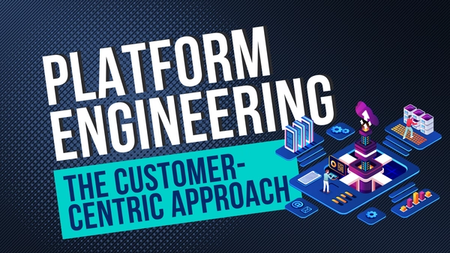Benefits of Platform Engineering

Platform Engineering (3 Part Series)
- Platform Engineering Versus Devops
- Platform Engineering Roadmap: Best Practices You Need To Know
- Benefits of Platform Engineering
In a world where technology advances at lightning speed, it is imperative for organizations to equip themselves with the best practices in the software development industry. If you've been keeping up, you may have heard about one of the latest cultural shifts that many companies are embracing: platform engineering.
In this article, I will delve into the key reasons why engineering leaders must invest in a platform engineering team to foster organizational success. Let's first start by understanding what platform engineering is.
What Is Platform Engineering?
Platform engineering is transforming the way organizations approach software development, especially in the ever-evolving landscape of today. At its core, platform engineering focuses on providing robust and standardized internal tools and platforms that enable developers to concentrate on their primary task—writing and deploying code. By providing a suite of reusable tools, environments, and services, platform engineering significantly reduces the cognitive load on developers, allowing them to deliver value more efficiently. Let's see the benefits of platform engineering vs traditional DevOps workflow.
Accelerating Time-to-Market with Platform Engineering
Being able to ship quickly is a crucial factor for organizations. The faster you can roll out new features, bug fixes, and updates, the more value you can provide to your users and customers. However, being able to ship fast requires proper enablement of your developers. Let's delve into the nuances of this argument next.
There are many things that can kill developer productivity. At the top of that list is likely the cognitive load that comes from constant context switching. In high-focus tasks like writing code, it is essential for developers to remain in their focus zone and work on what they do best without having to worry about other things. This includes tasks such as setting up development infrastructure and environments, spinning up test and staging environments, among other tasks.
When application developers have to switch from writing code one moment to working with cloud services and containers the next, it creates an unnecessary cognitive load and hampers productivity. They end up spending time learning and debugging tools like Kubernetes, Terraform, and cloud provider platforms like AWS, GCP, etc. This time could be much better utilized for writing code for the application and delivering value. This, in my opinion, is the biggest benefit of platform engineering.
Research reveals that developers spend approximately 17% of their time shifting contexts between tasks. Read more in this paper here.
Platform Engineering Teams: The Key to Developer Productivity
This is where a platform engineering team comes into play. By packaging all the tools and resources that developers need under a unified platform which automates these productivity killing tasks, they make it easier for developers to focus on what they do best.
For example, Okteto is a development platform that allows developers to quickly create production-like development environments based on predefined configurations set by the platform engineering team. Similarly, there are service catalogs like Backstage that serve as a platform for developers to easily discover all the different microservices and applications within an organization. Ultimately, a platform aims to empower developers by providing them with the necessary resources and information, eliminating the need for constant context switching.
To summarize, if you want to deliver value to your customers quickly, you need to ensure that your developers can focus on what they do best without having to juggle a thousand other things. And this is where platforms truly excel!
Easier Security Compliance Thanks to Standardization
When a platform becomes the streamlined way for developers to get things done, it means there are no more ad hoc decisions being made by developers for different tasks. With everything now maintained by the platform engineering team, it becomes much easier to ensure security and compliance across the organization. The platform team can define standardized processes and tools and abstract away the implementation details under the platform. This is something I feel platform engineering does better as compared to the DevOps way of doing things.
This means all dev workflows by default work just like how the platform team defined them, and everything is standardized. This makes it so much easier for organizations to comply with security policies and minimize the chances of a breach of security due to human error. Instead of trusting each developer to follow the security best practices (which many times they might not even know about!), the platform engineering team can bake them into the platform itself and ensure a uniform and secure system across the board.
Bonus Platform Engineering Benefit: Cost Optimization
One of the often overlooked benefits of platform engineering is cost optimization. By automating tasks behind the scenes of the platform, it becomes easy to implement features like a garbage collector and auto scaling of resources and environments. These optimizations result in significant cost savings in the long run.
Let's consider Okteto's Garbage Collector, which allows platform engineers to define a time period for inactive development environments. After this period, the system automatically deletes these environments. This eliminates concerns about idle cloud resources that incur unnecessary costs each month. Additionally, the platform handles auto scaling of resources based on usage, ensuring that you only pay for what you actually use, rather than overprovisioned resources. You can find more information about this feature here.
Conclusion
The narrative around Platform Engineering is, at its core, a story of faster development velocity, easier governance, and an effective use of resources. It's about abstracting and automating away the things that hamper developer experience and, in the process, achieving standardized and streamlined workflows.
For businesses seeking to invest in longevity, there's no better time than right now to give due recognition to this cultural shift and ensure that your development teams continue to function smoothly in the long run. Don’t just take my word for it, read about the success story at monday.com where they saw a 50% increase in developer velocity after investing in platform engineering!
Platform Engineering (3 Part Series)
- Platform Engineering Versus Devops
- Platform Engineering Roadmap: Best Practices You Need To Know
- Benefits of Platform Engineering


 Arsh Sharma
Arsh Sharma